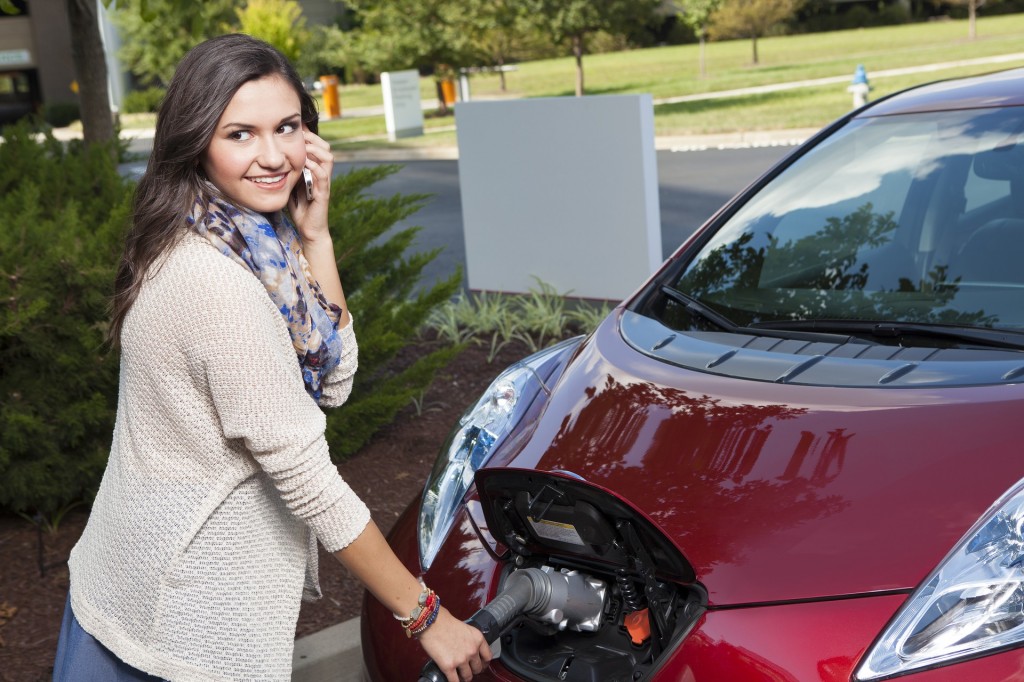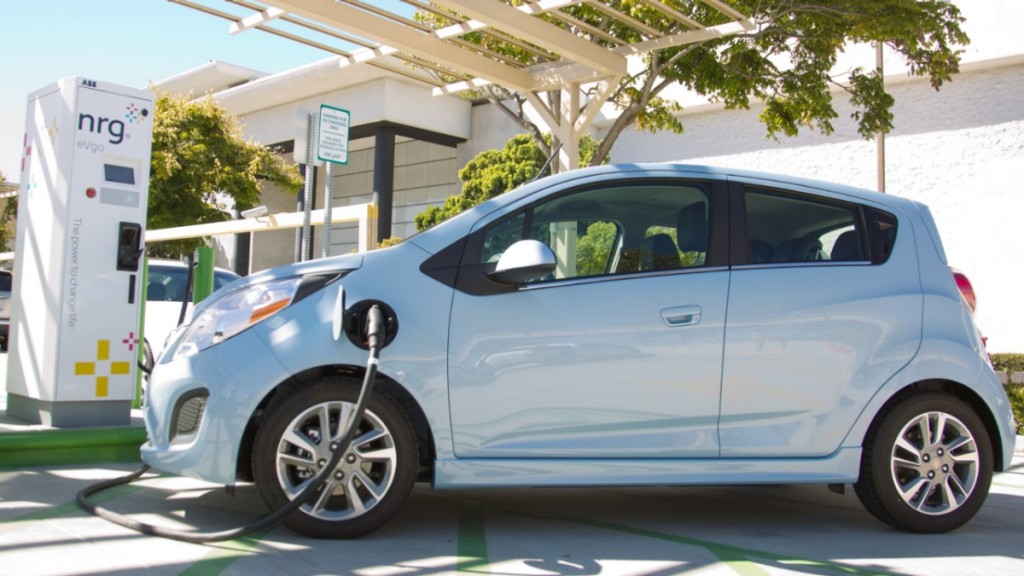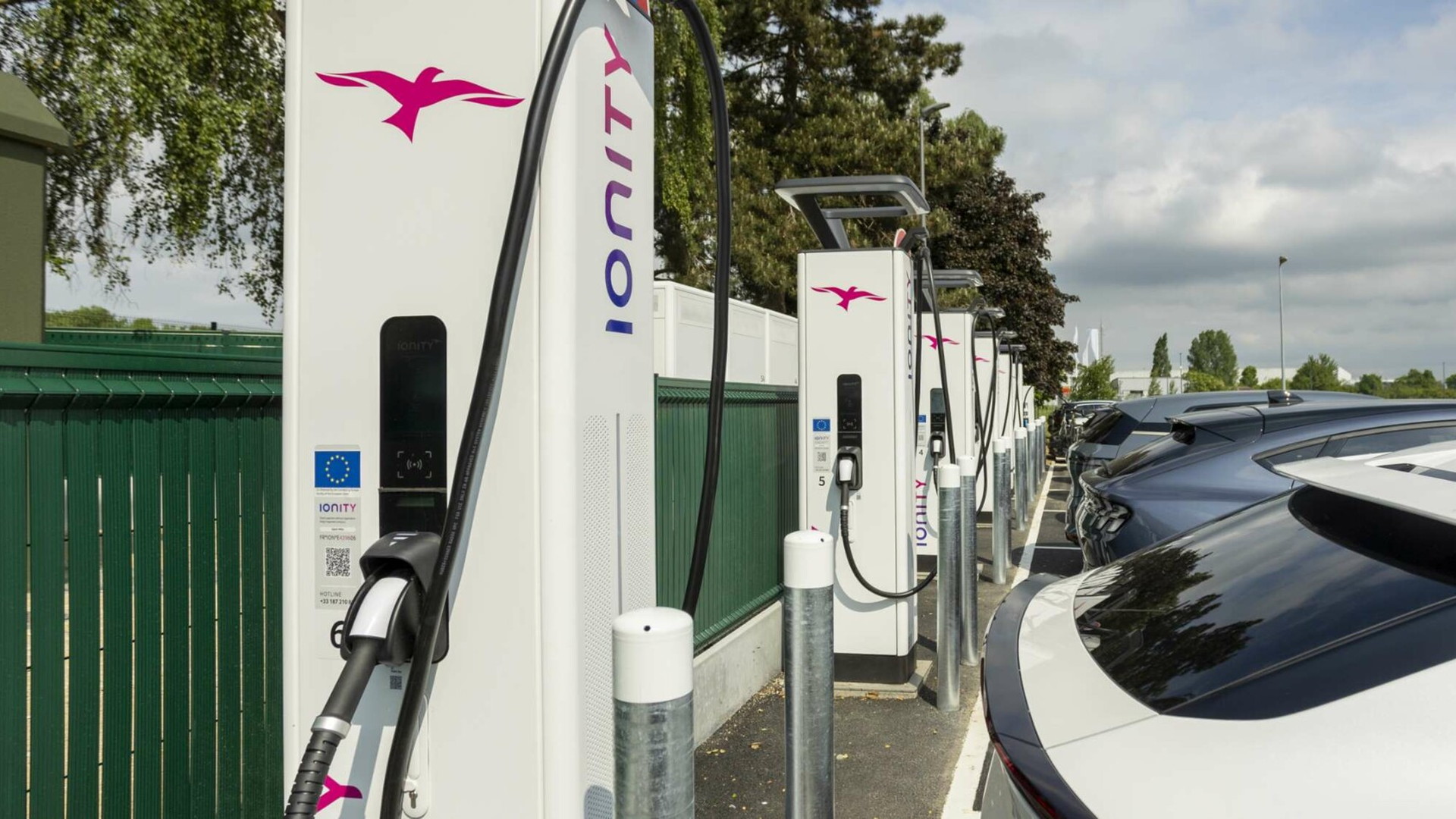Gas prices are falling: Michigan has signs advertising regular at $1.99 per gallon.
It's now below $3 a gallon even in California, which continues to be the focal point for electric-car adoption.
Now an electric utility CEO has joined with an environmental advocate to urge that Californians stay the course in their adoption of plug-in electric vehicles.

2011 Chevrolet Volt using Level 2 240-Volt charging station in Vacaville, California
At the same time, an advocacy group urges Californian electric-car owners to learn about off-peak charging rates that may cut their costs even further.
An analysis by Plug-In America just this week showed conclusively that electric-car sales do not vary with gas prices.
DON'T MISS: Cheap Gas Will Cause Electric-Car Sales To Plummet: True Or False?
But that hasn't stopped a lot of headlines lately saying that they do.
Perhaps in response, Edison International CEO Ted Craver joined Roland Hwang, of the Natural Resources Defense Council, in penning an editorial last week in the Los Angeles Daily News.
The headline sums it up: "California must push ahead with electric vehicles despite low gas prices."

Golden Gate Bridge, connecting San Francisco and Marin County, California
The pair argue that with half of California's total energy consumption going into transportation, drivers send $70 billion a year out of state.
Driving on locally generated electricity would keep much of that cash in the state, they suggest, noting that the greater efficiency of electric cars means that their drivers pay the equivalent of $1.10 per gallon.
As the piece states, bluntly, "Our national petroleum habit remains expensive, polluting, and is making us sick."
ALSO SEE: California, Washington Lead All Other States In Electric-Car Ownership Rates
Are Californian electric-car drivers paying too much for the electricity they use to recharge?
In some cases, says the Center for Sustainable Energy, the answer may be yes.
In a recent blog post, the clean-energy advocacy group notes that 38 percent of the state's electric-car owners say fuel-cost savings were their primary motivation for buying.

2015 Nissan Leaf
But many of them "don’t take advantage of readily available special electricity rates for vehicle charging"--in part because just one-third of them found their salespeople to have a "concrete understanding of utility rates."
As a result, more than half--60 percent--just recharge their cars at standard household rates, not taking advantage of the state's widespread "Time of Use" rates that cut the price substantially for off-peak charging (between 11 pm and 6 am, say).
And those owners, the Center says, are paying $900 more per year on average than they might otherwise be to drive the same number of miles.
The solution?

Chevrolet Spark EV at CCS fast charging station in San Diego.
Dealers must step up their efforts to educate salespeople, and utilities should reach out to dealerships to help them. And, the complexity of choosing electric rates and even the language in which they're presented needs to be greatly simplified.
For Californian readers with electric cars, we might put it this way: Are you paying $900 more than you should be to recharge your car?
_______________________________________________













